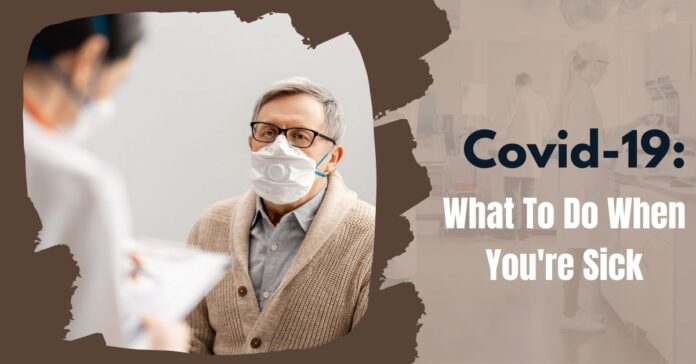Do you experience breathing difficulty, cough, and fever? Do you think you may have contracted the novel coronavirus? Don’t panic as we will be showing you the steps you can take to handle the situation:
Remain at home and seek medical attention
Should you be feeling sick even with less serious symptoms, kindly stay at home and away from crowded places like work, school, public transport, to lower your chances of contracting or spreading the viral infection. The only exception is if it is an emergency.
Should you have serious symptoms or think you should see a doctor, call the clinic ahead of time describing your symptoms during the phone call. For a medical emergency, call the state health emergency number and explain your symptoms to them.
Provide answers to questions on risk assessment
Your risk of coronavirus will be asked via a series of questions when you call a health centre. This includes your recent travel to high-risk countries and exposure to persons infected.
See typical example questions that can be asked:
- Have you been exposed via close contact with persons diagnosed with COVID-19? This means if you have at any time been exposed to the sneeze, cough, or within 6 feet of an infected person for a long time
- Are you experiencing breathing difficulty, cough, chills, fever, congestion or runny nose, nausea, vomiting, headache, diarrhoea, sore throat, new fatigue, muscle or body aches, the new loss of smell or taste?
- Have you been declared by a medical expert as being potentially exposed to the new coronavirus causing covid-19?
Adhere to your doctor’s guidelines
Your answers to these questions will cause your doctor to offer instructions during the call. They will tell you if you need evaluation and how to go about it. After considering your coronavirus risk, the following recommendations may be made by your doctor:
- Keep a close watch on your health and make a call should you have a fever or symptoms of respiratory problem
- Remain at home and wait for more instructions
- Visit a recommended health clinic for diagnosis and treatment. We recommend you go alone without friends or family except you need help
- Should your symptoms get worse, like you suddenly develop a higher fever, and more serious breathing difficulty, kindly visit an emergency unit or hospital
Maintain good hand hygiene and respiratory practice
- Put on a face mask when you visit a clinic to prevent others from getting infected by coughs and sneezes
- After using the restroom, sneezing, coughing, blowing your nose, and before eating or preparing meals, wash your hands very well for at least 20 seconds
- Sneeze and cough into the crook of your elbow or into a tissue and trash it at once
- Wipe down with disinfectant spray, areas and items that are frequently touched in your home like doorknobs, handles of a cabinet, remote control, keys, phones, tabletops, countertops, chairs, tables, etc
Don’t panic
The chances of contracting coronavirus make one scared, but remain calm as doctors and health experts are still studying this viral infection as the day goes by. There is a collaboration with national and international organisations to find a vaccine for the virus and take care of already infected persons so as to reduce community transmission as quickly as possible. Do your best to take care of yourself and family and never let your guard down even as places begin to open up. In the meantime, if you have any symptoms of coronavirus, book your appointment for PCR test in London. Your health and safety are very important.

